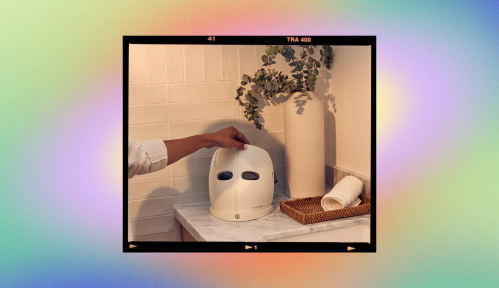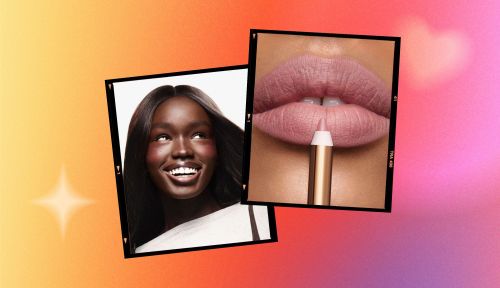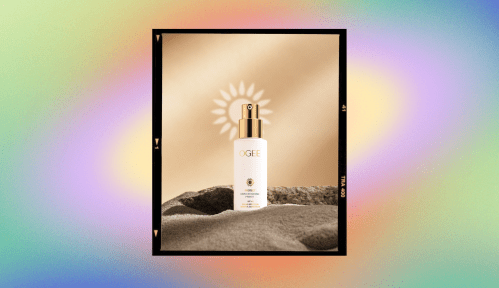Our editors independently select these products. Making a purchase through our links may earn Well+Good a commission
The Best Dark Spot Correctors for Treating Every Type of Discoloration, According to Dermatologists
Dermatologists weigh in on the best dark spot correctors that will help you fight all kinds of discoloration, from sun spots to melasma.

Dark spots are notoriously difficult to treat without the help of an expert and good dark spot corrector. There are dozens of in-office treatments dedicated to helping even out discoloration, including lasers, microneedling devices, and peels. But as skin-care formulations get smarter, our options for fading hyperpigmentation at home are better now than ever before—and pros agree that some of the best dark spot correctors money can buy are readily available over the counter (or, if you shop the way I do, over the Internet).
Experts in This Article
board-certified dermatologic surgeon at Shafer Clinic Fifth Avenue in New York City
board-certified dermatologist and clinical instructor of dermatology at Weill Medical College of Cornell University
founder and CEO of Brilliance by Brown
board-certified dermatologist at Dermatology Physicians of Connecticut and associate clinical professor in dermatology at Yale School of Medicine
board-certified dermatologist and founder of Visha Skincare
The best dark spot correctors
Keep scrolling for the products—and ingredients—that pros recommend for treating dark spots and discoloration, plus everything you need to know to get rid of them once and for all.
Best bang for your buck
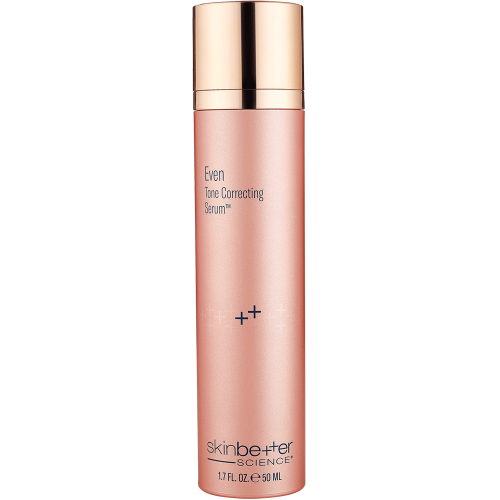
Skin Better Science Even Tone Correcting Serum — $145.00
This single serum has got an entire laundry list of discoloration-fighting ingredients, which is why Hadley King, MD, a board-certified dermatologist based in NYC, names it as her most-recommended dark spot correcting serum. It’s got arbutin, vitamin C, and retinol, among other dark spot-treating actives like phytic acid, diglucosyl gallic acid, hexylresorcinol, and acetyl glycyl beta-alanine (phew!).
Best luxury
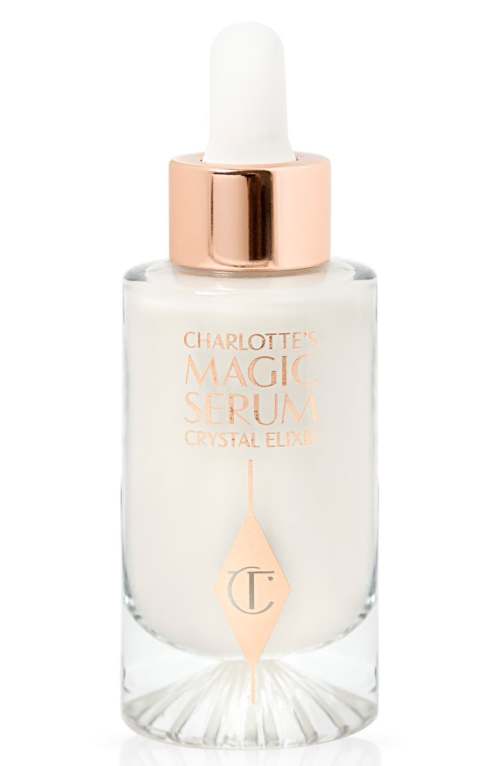
Charlotte Tilbury Magic Serum Crystal Elixir — $80.00
This award-winning serum is clinically proven to make skin appear “younger, firmer and more hydrated,” says Dendy Engleman, MD, a board-certified dermatologist based in New York. “Blending potent ingredients like age-fighting vitamin C and adaptogens, it minimizes the appearance of aging signs like wrinkles and hyperpigmentation, and makes skin appear glow-y and refreshed.”
Best drugstore
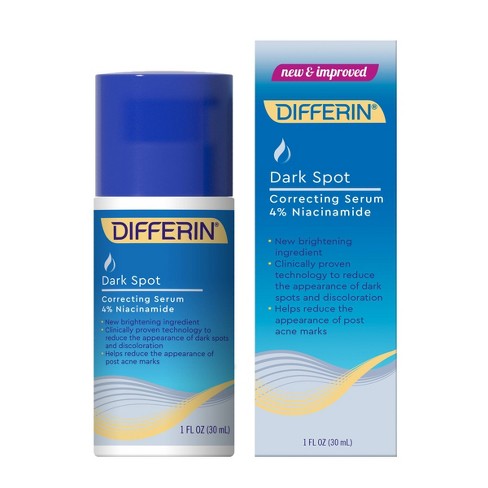
Differin Dark Spot Correcting Serum — $12.00
“Differin is really effective because it contains 2 percent hydroquinone, which is a powerful FDA-approved ingredient that interferes with melanin production in order to lighten dark spots,” says Dr. Engleman. At a 2 percent concentration, this is the most powerful hydroquinone you can get over the counter.
Best with antioxidants
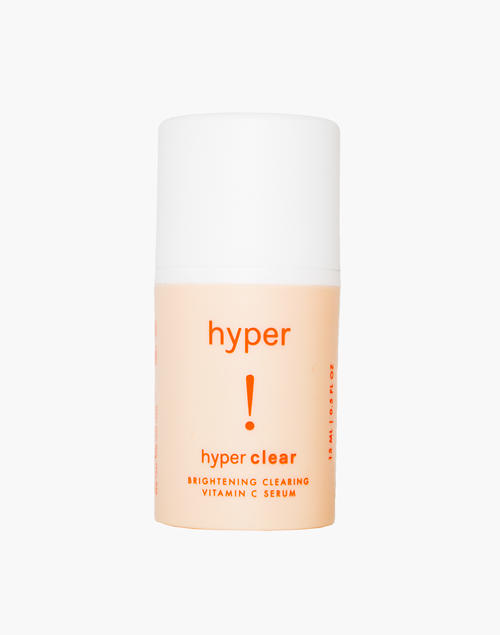
Hyper Skin Hyper Clear Brightening Clearing Vitamin C Serum — $36.00
This serum brings together vitamins C and E, which work together to brighten skin, fade dark spots, and provide antioxidant protection to help stave off the damage from environmental stressors. It’s also got discoloration-fighting turmeric and kojic acid, so you can rest assured that you’ll be getting a whole lot of bang for your $36 buck.
Best do-it-all
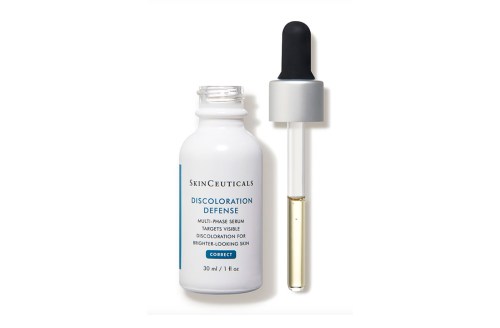
SkinCeuticals' Discoloration Defense — $98.00
This serum includes kojic acid, tranexamic acid, and niacinamide—aka three of the best discoloration-fighting ingredients you can buy—and is free from hydroquinone, which means you don’t have to worry about over-bleaching. “Delivering these powerful lightening agents can help fade melasma and sunspots more quickly than laser and microneedling alone,” says Caren Campbell, MD, a board-certified dermatologist based in San Francisco. I’ve personally been using this stuff for years, and haven’t seen my old acne scars since 2019.
Best patches
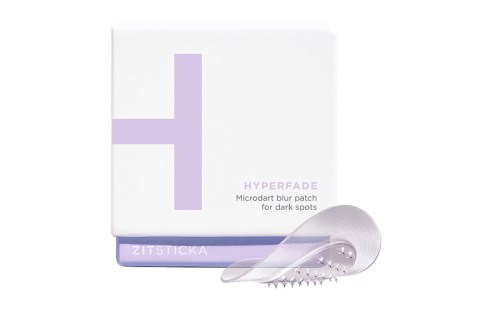
ZITSTICKA HYPERFADE Microdart Blur Patch for Dark Spots — $34.00
If you want to treat individual dark spots, these little patches are a great pick. They’re made with 24 self-dissolving micro darts that melt within two hours of being applied to the skin, and deliver ingredients like hyaluronic acid, niacinamide, vitamin C, licorice root extract, arbutin, and kojic acid deep into your skin to brighten and repair PiH and sun spots.
Best for darker skin tones
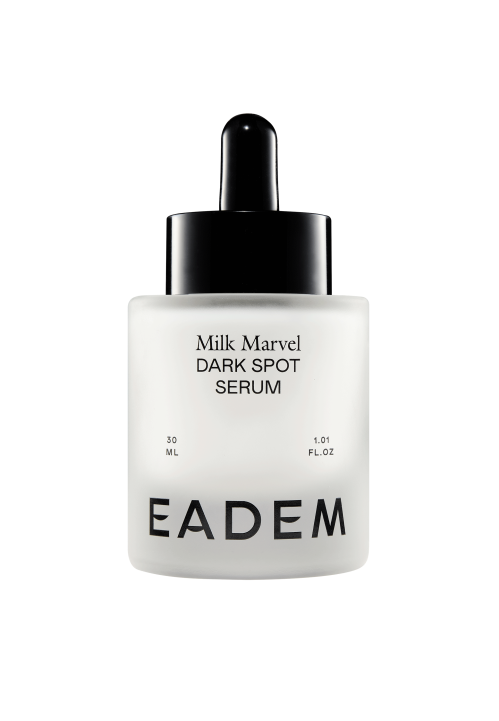
Eadem Milk Marvel Serum — $68.00
Designed with darker skin tones in mind, you can be sure that this serum will fade dark spots without any bleaching issues. Amber algae, niacinamide, vitamin C, and licorice root work alongside exfoliating enzymes and hydrating agents to brighten your complexion and smooth out textural issues.
Best exfoliant
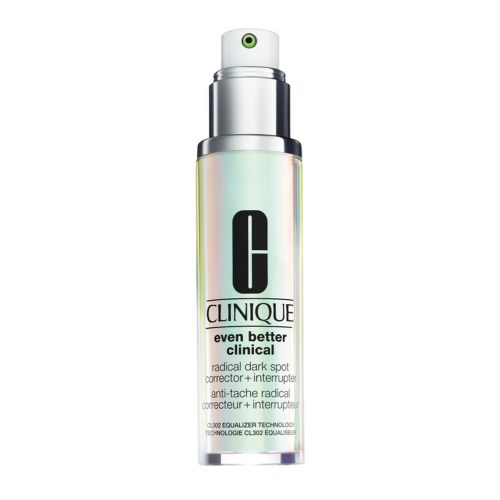
Clinique Even Better Clinical™ Radical Dark Spot Corrector + Interrupter Serum — $55.00
Dr. Engleman is a fan of using gently exfoliating acids to remove old, dull, dead, and discolored skin cells, and this stuff delivers them in droves. It’s made with glucosamine and salicylic acid, which help weaken the bonds that hold the dead skin cells to your skin in order to melt away surface cells that contain excess melanin (thus fading hyperpigmentation). It’s also got a propietary ingredient called the Clinique “cluster buster,” which helps to break up and exfoliate large clusters of excess pigment so that discoloration is less visible.
Best under-$10
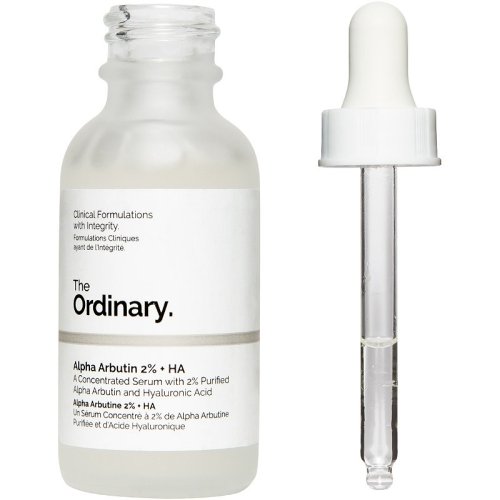
The Ordinary Alpha Arbutin 2% + HA — $9.00
This serum pairs a 2 percent concentration of hyperpigmentation-fighting alpha arbutin with hydrating hyaluronic acid in order to quench your skin while also evening its tone. And don’t let the low price-tag fool you: Heidi Brown, skin-care pro and the founder of the Brilliance by Brown skin-care blog, previously told Well+Good that she uses this stuff every day on her own melasma.
Best clinical grade
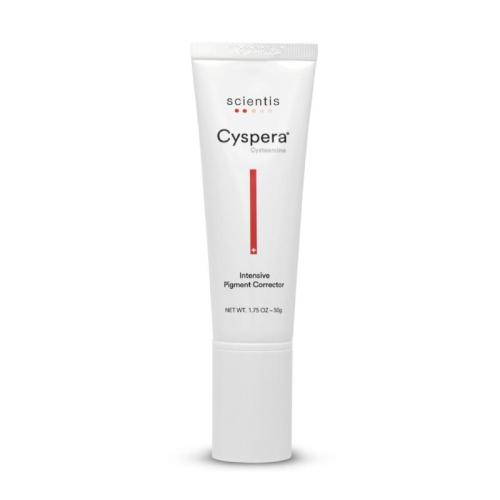
Cyspera Intensive Pigment Corrector — $169.00
This next-gen melasma treatment launched last year, and is made with topical cysteamine which studies have shown can significantly decrease the excess melanin content in the skin that leads to visible darkening. “This pigment corrector deals with melanocytes, and what I do is apply it to my face in the morning before my cleansing step, leave it on for 15 minutes, and then wash it off with a gentle cleanser,” says Brown.
Best retinoid
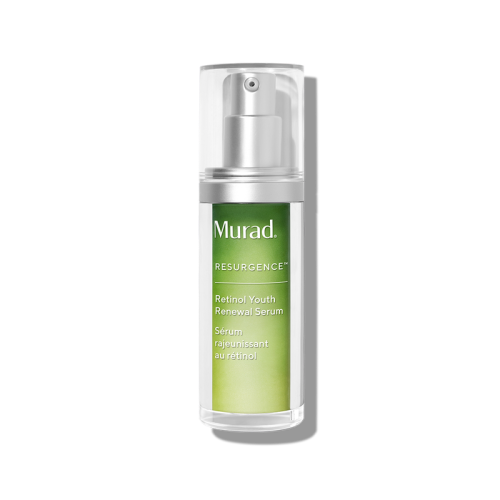
Murad Retinol Youth Renewal Serum — $89.00
What makes this particular vitamin A serum stand out is the fact that it’s formulated with three different types of retinol. There’s an instant release retinol, which works to instantly plump skin, a time-release retinol that continues this plumping effect for the long haul, and a retinol booster to ensure that these ingredients are working to their full potential.
Best with niacinamide

First Aid Beauty Facial Radiance Niacinamide Dark Spot Serum — $42.00
Niacinamide is known as a dark-spot correcting hero, and this serum pairs the derm-beloved ingredient with licorice root. It works on all types of discoloration, including sun spots, acne scarring, and hyperpigmentation.
Best hydrating
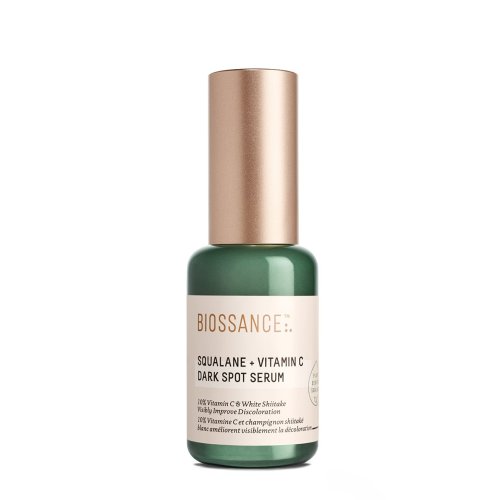
Biossance Squalane + 10% Vitamin C Dark Spot Serum — $62.00
Simply put: I love this serum, and use it every morning. It’s got hydrating squalane plus skin-brightening vitamin C and discoloration-treating licorice root, which work together to moisturize your complexion while also evening tone and texture. Thanks to its antioxidant prowess, it also protects new dark spots from forming on your skin in the future.
Best makeup
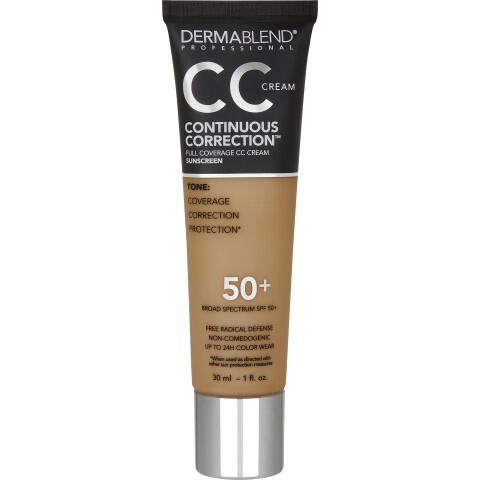
Dermablend Continuous Correction CC Cream SPF 50 — $39.00
This CC cream covers and corrects your dark spots at the same time. It offers a medium-coverage tint to conceal any discoloration, and employs niacinamide to even your natural skin tone as you move throughout your day. Plus, it’s got SPF 50, which will protect you from future sun damage.
Best clinical-grade
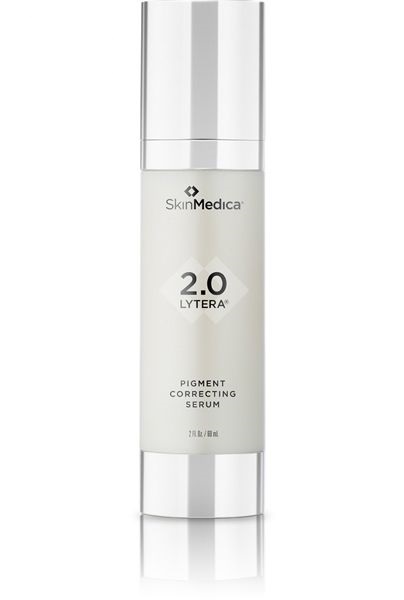
SkinMedica Lytera 2.0 Pigment Correcting Serum — $154.00
The ingredient list on this derm-developed serum all basically have doctorals in treating discoloration. There’s niacinamide, tranexamic acid, retinol, and phytic acid, among others, which work together to get the job done about as well as what you could expect from a pro-grade treatment. It’s no wonder our beauty director swears by it.
Best for acne
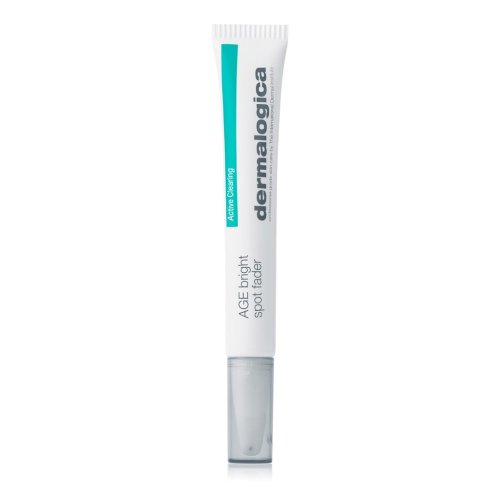
Dermalogica AGE Bright Spot Fader — $45.00
This targeted spot treatment uses witch hazel and salicylic acid to quash pimples, then brings in niaciamide to prevent any scarring before it starts. Use it on your active breakouts to get rid of them, and to ensure they won’t leave any discoloration behind after they’re gone.
What are dark spots?
“In many cases, dark spots are caused from skin damage: either an acne scar, which is usually left behind after picking at blemishes, or sun exposure, which is more likely as patients age,” says Dr. Engleman. “Other factors like genetics and the amount of melanin, or pigment, in the skin also influence the appearance of dark spots.”
That said, the phrase “dark spots” is an umbrella term that’s used to describe skin discoloration, and can refer to a few different things:
1. Sun spots
“Sun spots, or lentigines, are small pigmented spots on the skin with a clearly defined edge, surrounded by normal-appearing skin,” says Dr. King King. They’re harmless, and come as a result of an overproduction of melanocytes, aka the cells that give your skin its pigment. “They are caused by sun exposure, plus a susceptible genetic background,” says Dr. King, noting that sun spots are more prevalent in older, white adults (they effect 90 percent of white people over 60) than other populations.
2. Post-inflammatory hyperpigmentation
“Some dark spots are post-inflammatory hyperpigmentation, which is when pigment is left in the skin after an inflammatory process resolves,” says Dr. King. This is commonly seen as the aftermath of a breakout—the scar that’s left behind when you pick at a pimple. It’s worth noting, though, that PiH is possible no matter how diligent you are about keeping your hands away from your face. “Sometimes, acne by itself is inflammatory enough to cause discoloration, even if it’s not picked,” says Dr. King.
3. Melasma
Melasma, which is characterized by dark patches of skin, is one of the most common skin conditions out there. “Melasma happens when the pigment-producing cells, or melanocytes, in the skin are triggered to get bigger and produce more pigment,” Purvisha Patel, MD, a board-certified dermatologist and the founder of Visha Skincare, previously told Well+Good. “We are all born with the same number of melanocytes, they are more active in darker-skinned people, and are not evenly distributed in everyone, so when they get big or hyperactive, this results in uneven pigment on the skin. Dr. King explains that there are a number of factors that contribute to melasma—including a genetic predisposition, hormone levels and sun exposure—and the condition is notoriously difficult to treat.
How to treat dark spots (and the best ingredients to look for in products)
The best thing you can do to prevent dark spots is apply SPF 365 days a year, because no matter what the root cause of your discoloration may be, any sort of sun exposure can make things worse. If you’re already dealing with dark spots, though, there’s a slew of ingredients that can help them go away.
1. Hydroquinone
Hydroquinone is known as the gold standard of treating discoloration, but it comes with some downsides. “Hydroquinone is available over the counter in 2 percent formulation and as a prescription in 4 percent formulation,” says Dr. Patel. “This drug effectively lightens the pigmented skin, but if used over a long period of time, can be dangerous and create hyperpigmentation as a side effect—the opposite of what we want to happen.” It’s also rumored to thin the skin, and it’s not safe to use if you’re pregnant.
2. Arbutin
Consider arbutin the gentler, more readily-available alternative to hydroquinone. “Arbutin is a glycosylated form of hydroquinone that is extracted from the bearberry plant,” says Dr. King. “Applied topically, it inhibits an enzyme called tyrosinase, which is needed to produce melanin, and thus prevents the formation of melanin.”
3. Niacinamide
Niacinamide is one of those “do-it-all” ingredients that helps diminish the appearance of existing dark spots while also helping to prevent new ones form appearing. “It serves as a precursor to molecules in the body that are responsible for cell proliferation, the repair of cellular damage and other biochemical necessities,” says Dr. King, pointing to research that found niacinamide to be effective for reducing the appearance of dark spots and other forms of discoloration. “It’s also a potent antioxidant that brightens skin by fading hyperpigmentation and reducing redness, and increases the skin’s production of ceramides, which help strengthen the skin barrier, preventing loss of moisture,” she adds.
4. Azaleic acid
Azaleic acid—a gentle alpha-hydroxy acid—also works as a tyrosinase inhibitor to help even out the appearance of melasma. “As opposed to sloughing off skin the way other AHAs do, it acts as an inhibitor,” says Brown. “And that’s the important thing with melasma: You have to look at the inhibitors that will slow down the process of melanin rebuilding itself because otherwise, it will get darker.”
5. Kojic acid
Another enzyme inhibitor, this acid “blocks tyrosine from forming which then prevents melanin production,” says Dr. King. It effectively works to lighten skin, and can be used on all types of discoloration including melasma and post-inflammatory hyperpigmentation.
6. Tranexamic acid
“Studies have shown that tranexamic acid slows melanin synthesis by inhibiting the plasminogen/plasmin pathway,” says Dr. King. “Doing so blocks interactions between melanocytes and keratinocytes.” In other words? Using topical or oral versions of the ingredient can help to decrease hyperpigmentation associated with melasma.
7. Vitamin C
You’re likely familiar with the brightening and skin-tone evening properties associated with vitamin C, which make it a great option for treating discoloration. “It’s a superstar skin-care ingredient and antioxidant,” says Mona Gohara, MD, a board-certified dermatologist based in Connecticut. “I love to tell my patients to use it because it scavenges free radicals, resulting in brighter, better functioning skin.”
8. Licorice extract
“Topical application of skincare products infused with licorice extract can help to provide a healthy glow as well as enhance the skin’s overall quality and appearance,” says Dr. King. The ingredient is packed with antioxidants, which can help to inhibit the amount of oxidative stress in your skin—aka one of the main culprits behind sun-induced dark spots. “Antioxidants work to neutralize free radicals present in the environment,” says Dr. King. Consequently, the use of licorice extract for skin may inadvertently enable a soothing effect that can help alleviate problematic skin. Furthermore, licorice extract constituents—namely glabridin and liquiritin—may also utilize their oxidative scavenging abilities to promote skin radiance.”
8. Retinol
Ok but actually—is there anything retinol can’t do? Aside from treating acne and fine lines, the vitamin A derivative can also help to fade discoloration. It stimulates cell turnover to bring healthy new cells to the surface of your skin, replacing the dead discolored ones that are making your skin tone look uneven.
9. AHAs
“I recommend using hydroxyacids to gently exfoliate the skin, remove old, dull and discolored skin cells, and promote cell turnover,” says Dr. Engleman. In addition to kojic and azaleic acid, lactic and glycolic acids are also great options.
Oh hi! You look like someone who loves free workouts, discounts for cutting-edge wellness brands, and exclusive Well+Good content. Sign up for Well+, our online community of wellness insiders, and unlock your rewards instantly.
Sign up for the Well+Good SHOP Newsletter
Get exclusive deals on wellness, beauty, fitness, and food products that have been hand-picked by our editors.
Got it, you've been added to our email list.

